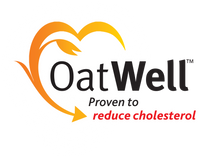What Is Cholesterol?
What is cholesterol? Cholesterol is a natural part of our body. It is a fat-like substance which is largely produced by the body itself. There are 2 sources of cholesterol: 1) the liver , which produces around 1 gram of cholesterol per day and 2) the diet. Cholesterol is used to form cell membranes, important hormones, bile acid and vitamin D, which is important for the bones.
Too much cholesterol in the blood, however, is a major risk factor for arteriosclerosis (hardening of the arteries). This increases the risk of cardiovascular diseases such as angina pectoris, heart attacks, strokes or circulatory problems.
Cholesterol Diet
There are two types of cholesterol in the body: LDL & HDL.
- LDL (Low Density Lipoprotein-Cholesterol) – also called “bad” cholesterol – becomes deposited in the arteries and promotes the process of arteriosclerosis.
- HDL (High Density Lipoprotein-Cholesterol) – also called “good” cholesterol – helps get rid of excessive cholesterol.
Triglycerides (so called neutral fats) in the blood can also promote arteriosclerosis.
It is therefore important not only to measure the total cholesterol level, but to be aware of the LDL and HDL cholesterol ratios and the triglyceride level in the blood.
OatWell™ is proven to reduce the “bad” LDL cholesterol and contribute towards your cholesterol diet goals, without affecting the “good” HDL cholesterol. All the OatWell™ products contain a high percentage of beta-glucan.
| Ideal cholesterol diet levels | |
|---|---|
| Ideal cholesterol level | under 5 mmol/l |
| LDL cholesterol | under 3.0 mmol/l |
| Triglycerides | under 1.7 mmol/l |
| HDL cholesterol | over 1.0 mmol/l |
| UK Health Guidelines | |

